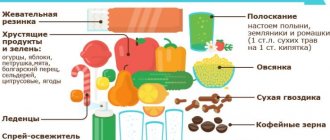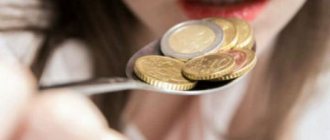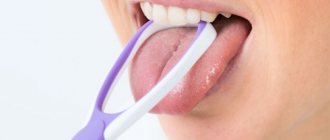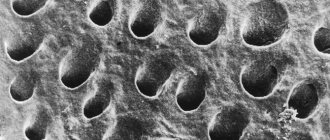According to statistics from the Medical Society of Therapists, more than 50% of the adult population , when seeking help from a medical institution, complains of strange taste sensations in the mouth.
At the same time, they do not in any way depend on the taste of the food consumed, but appear on their own.
Most of these patients note that they feel an unpleasant taste of soda in their mouth.
In this case, it may disappear for a short time, and then appear again.
Important! Such a symptom must be treated with the utmost care, because it often hides serious health problems.
Probable Causes
Diseases
A common cause is disruption of the digestive system. But serious diseases can provoke the phenomenon.
- Liver problems. In the initial stages of liver disease, there is no pain syndrome, so the taste of soda will help not to miss a possible malfunction of the body.
- Disorders of the biliary tract. Perhaps they are full of bile. During normal operation, bile should flow into the duodenum. But in case of pathology, it accumulates in the gallbladder, after which it is thrown out through the stomach and esophagus into the mouth.
- Gastritis with low acidity. When the secretion of gastric juice is weak, food is not completely digested, it stagnates, which provokes a kind of fermentation in the body. The result is an unpleasant odor (halitosis) and a soda taste in the mouth. A related symptom of the disease is a rotten taste.
- Diabetes. Only an endocrinologist can establish an accurate diagnosis. Only he can eliminate the symptoms by prescribing medications and a therapeutic diet.
- Violation of the integrity of the tooth, inflammation of the gums, and bleeding are possible provocateurs for the appearance of a soda taste in the oral cavity.
To solve the problem you need the help of a specialist. Only a full medical examination will allow you to accurately determine the source of the unpleasant taste. And the doctor will be able to establish a diagnosis and prescribe a course of treatment. Ignoring such a symptom is unacceptable!
Other provocateurs
- Alcohol abuse. Excessive drinking leads to dehydration. As a result, saliva becomes more viscous, sometimes salty, and begins to taste like soda. It is necessary to limit or completely stop drinking alcoholic beverages.
- Long-term drug therapy. Some medications and treatments cause changes in taste because they affect nerve endings, changing the brain's perception. It is possible to refuse to use a particular drug, but only with the approval of the attending physician.
- Binge eating. The intestines do not have time to process large volumes of food and lose activity. Food stagnates, which leads to an unpleasant astringent sensation in the mouth. Will correct the situation: balanced fractional meals.
- Excess iodine. It is rare in medical practice. Associated symptoms: foul breath, fever and vomiting. Gastric lavage will help.
- Nutrient deficiency. American doctors associate the loss or severe decrease in taste with a lack of vitamin B12 and zinc in the body.
- Smoking. Cigarettes contain toxic chemicals that damage your taste buds. The result is a terrible taste and bitterness in the mouth. In experienced smokers, even after quitting the bad habit, the receptors may not fully recover.
Provocateurs: antibiotics, antidepressants, hormonal, cardiac, chemotherapy, neurological medications, drugs for tuberculosis, Alzheimer's disease.
Attention! The taste of soda in your mouth may indicate other serious disorders: brain damage, an allergic reaction, the effects of radiation therapy, an autoimmune disorder.
Useful video
From this video you will learn what to do if you have an unpleasant taste in your mouth:
The feeling of soda in the mouth is a signal from the body that requires careful attention to itself .
It is quite possible that he is simply “tired” of overeating, nervous tension , taking a large number of medications and begins to malfunction in this way.
And it is quite possible that he is crying out for help. And it requires curing a disease in order to avoid the occurrence of other, more serious health problems.
Associated symptoms
Nausea
The taste of soda along with nausea indicates gastritis.
Bitterness
If bitterness and metal are mixed into the soda taste, this is a sign:
- pathologies of the liver and biliary tract;
- lazy bowel: weak peristalsis leads to the accumulation of food debris in the intestinal tract.
Sweet taste
The taste of sweetness in the mouth is one of the first symptoms of diabetes.
Dry mouth
The feeling of dryness in the mouth (when the mucous membrane seems tight, thirst arises) is subjective, but it clearly signals that you need to make an appointment with a doctor.
Viscous saliva
Indicates alcohol abuse and/or dehydration.
Liver pain
A soda taste in combination with pain in the liver can indicate serious diseases of the hepatobiliary system.
Since at the beginning of the disease the liver does not cause pain, people who are inattentive to their body trigger the disease.
Development time
After meal
A common reason for feeling the taste of soda immediately after eating is overeating.
The body, which has received a large portion of food (be it fried potatoes or vegetable salad), is not able to immediately break down and absorb it. Undigested residues settle in the gastrointestinal tract (GIT), forming real blockages.
Before bedtime
Due to the gradual accumulation of digestive waste in the body, an unpleasant taste may not appear immediately after eating, but only before bed.
In the morning
The taste of soda in the morning signals problems in the digestive system: the food that entered the body the day before during dinner did not have time to be digested.
The second probable cause is problems with teeth and gums, inflammatory processes in the ENT organs.
Why else do you need soda?
Was this whole complex process of making baking soda invented just to make the loaves fluffier? This product can be very useful in everyday life, while it is absolutely safe, non-toxic, fire and explosion proof.
Soda is a universal detergent and cleaner: for dishes, tiles, sinks, bathrooms, but it does not harm the skin of your hands and is completely washed off with water. Using soda, you can descale the kettle (2 tbsp soda + 500 ml boiling water, 5 hours) and clean the drain pipes (5 tbsp soda + 100 ml vinegar, 1 hour).
Another feature of soda is that it not only cleans, but gets rid of unpleasant odors, so it can be applied to the carpet or upholstered furniture, left for 10-15 minutes, and then vacuumed.
Soda is a mild abrasive that cleans and disinfects children's clothes and toys, while being absolutely safe for babies' skin. To effectively remove stains and eliminate unpleasant odors during washing, you can add soda: unlike some washing powders, soda is hypoallergenic.
Baking soda is an excellent cleaning agent
During pregnancy
As a result of a hormonal surge, pregnant women become very sensitive to bright smells and tastes. In the first months, some complain of the feeling of the presence of soda in the mouth. This goes away in the second trimester.
But another reason is possible.
Expectant mothers, listening to the advice of the older generation, begin to eat for two. Add exotic food wishes to this and you get an overload of the digestive system.
This negatively affects the unborn child. A woman’s health also suffers: an unbalanced diet during pregnancy serves as an impetus for the development of gastrointestinal diseases and obesity.
Peculiarities
In men
Abuse of alcoholic beverages and smoking , which are often common among the stronger sex, causes dehydration.
As a result, their saliva becomes more viscous and contains the taste of salt and soda .
To eliminate the unpleasant symptom, it is necessary to limit or completely stop drinking alcohol, and also drink at least 2 liters of water per day every day.
Among women
The taste of soda in the mouth often occurs when women use hormonal contraceptives for a long time or during pregnancy .
You should know! Both factors are directly related to a woman’s hormonal levels.
Any violation or deviation in which can provoke a distortion of the taste sensation: in this state, even familiar and favorite tastes can be perceived differently.
Such a feeling may be subjective, or it may have a very real basis.
In addition, pregnant women often overeat, eating “for two.”
Considering their often simply exotic wishes for food, we can conclude: the digestive system of expectant mothers suffers from overload, as a result of which a similar effect occurs.
After food
Milk
Feelings of the presence of soda in the mouth, dryness and tightness of the mucous membrane after milk can indicate problems with the stomach, especially if accompanied by nausea.
Baked goods containing soda
Many baked goods contain baking soda as a leavening agent. The characteristic taste after eating such sweets is not a cause for concern.
The body probably received an excessive amount of sodium bicarbonate from food. After some time, the unpleasant feeling will pass.
Jam
Sometimes a pinch of soda is added to the jam, but its taste after the classic delicacy is a signal that you need to see an endocrinologist.
The appearance of a persistent soda taste after sweets is associated with a sharp jump in blood sugar levels. Most likely, diabetes mellitus develops.
How is soda made?
Today, baking soda is produced using a method that was invented back in 1861 by the Belgian chemist Ernest Solvay.
The Solvay method turned out to be more environmentally friendly and effective than all previous methods of making soda. It was Solvay who built the first soda plant in Russia in 1883 on Berezovoy Island in the Perm province, which is still in operation today! True, they produce soda ash and lime milk there, which, despite their names, are not at all suitable for food, but are necessary for the chemical industry. To obtain sodium bicarbonate (also known as sodium bicarbonate, sodium bicarbonate and baking soda), you need limestone, deposits of which are located near production in the city of Sterlitamak. Limestone is burned in kilns, lime is obtained and a saline solution is added to it, and the resulting mixture is evaporated with ammonia. This produces technical sodium bicarbonate, but it is not baking soda yet - it needs to be purified. To do this, soda is dissolved in water and lye, then bicarbonate decomposes in a decarbonizer under the influence of steam: purified sodium bicarbonate precipitates, and harmful substances are removed. Next, the product is filtered, dried, crushed and packaged in packs.
Soda never remains indifferent in the company of vinegar
Prevention
The best prevention: regular visits to a therapist, passing the necessary tests. If you have the slightest problem with the digestive system, consult a gastroenterologist.
Effective preventive measures:
- Regular cleansing of the oral cavity: brushing teeth twice a day (morning and evening), additional rinsing with special antibacterial agents.
- Cleaning the tongue in the morning with a teaspoon (light movements back and forth, left and right) followed by rinsing with water.
- Eating citrus fruits. Lemons, oranges and grapefruits promote natural salivation and sanitize the oral cavity.
- At least 2 liters of clean drinking water daily.
- Rinse with a solution of sea salt, water with lemon juice, decoctions of chamomile, sage, fennel.
- Regular fractional and rational meals, rich in nutrients.
- The use of additional intestinal support agents during long-term drug treatment.
Treatment and elimination of unpleasant symptoms
The first step on the path to recovery is strict adherence to a therapeutic diet : avoiding fatty, salty, spicy foods. Alcohol ban. Meals should be fractional and in small portions.
Stay up to date! Drug treatment is prescribed according to the regimen determined by the attending physician, based on the established diagnosis.
Following some simple rules and recommendations will help reduce the intensity of unpleasant sensations in the mouth:
- Maintain oral hygiene: brushing your teeth and tongue twice a day, using pharmaceutical rinses, dental floss, regularly rinsing your mouth with water after each meal.
- Drinking enough fluids per day : water, juices, lemonade will help get rid of the soda taste.
- Increasing the amount of fruits and vegetables in the diet : some of them have the ability to influence the speed and quality of saliva formation. That, in turn, easily “washes away” the unpleasant taste from the surface of the mucous membrane.
- Rinsing the mouth with salt water will help in emergency cases to quickly get rid of the unpleasant symptom.
- Baths and rinses made from decoctions of medicinal herbs will also help chamomile, sage, string, sea buckthorn, fennel.
- You can also resort to chewing gum or a special spray : however, the effect will be relatively short-lived.
Treatment methods
- To prescribe the correct treatment, the doctor will definitely refer the patient who complains of the taste of soda in the mouth for examination: ultrasound of internal organs, ECDS, examination of gastric juice.
- A necessary condition is a diet: limiting fatty, salty, spicy foods, prohibiting alcohol.
- Taking medications as prescribed by the doctor after diagnosis.
Carefully! Do not resort to traditional methods of eliminating the unpleasant taste of soda in the mouth without qualified consultation with a doctor. Pseudoscientific recipes can make your condition worse.
Diagnostics
It is impossible to independently determine the cause of the distortion of taste at home.
Note! If you experience a systematic soda taste in your mouth, you should definitely consult a doctor.
Self-medication is unacceptable and can only worsen your health.
If such a sensation occurs in the mouth,
you should first consult a therapist .
It is this specialist who, after talking with the patient, collecting his medical history and receiving the results of simple laboratory tests ( general blood and urine tests ), will establish a presumptive diagnosis.
If necessary, the therapist will redirect the patient to specialized specialists:
- The gastroenterologist will prescribe an ultrasound of the abdominal organs, ECDS and examination of gastric juice if there is a suspicion that there is a problem with the health of the digestive tract.
- The endocrinologist will refer the patient for a blood test to determine sugar in order to confirm or refute the diagnosis of diabetes mellitus.
- The dentist will examine the patient's oral cavity : diseases hidden in it can be a source of an unpleasant taste sensation.
- The otolaryngologist will examine the ENT organs: inflammation developing in them can give such a “side effect”.
- The toxicologist will study the test results and talk with the patient: his help will be needed in case of poisoning or overdose of chemicals.
- The narcologist will examine the person, talk to him, and conduct a series of diagnostic tests to determine whether the patient is abusing alcohol.
After conducting a set of studies, the doctor will indicate the necessary pharmacological drugs and determine a treatment regimen.










